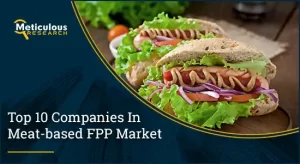Meticulous Research®—a leading global market research firm—has published a report titled “Plant Breeding Market by Method (Conventional, Biotechnological), Trait (Herbicide Tolerance, Disease Resistance), Application (Cereals and Grains, Oilseeds & Pulses, Fruits and Vegetables), Geography—Global Forecast to 2029.”
Download Research Report Sample @ https://www.meticulousresearch.com/download-sample-report/cp_id=5387
According to this latest report, the plant breeding market is projected to reach $33.79 billion by 2029, with a compound annual growth rate (CAGR) of 14.1% from 2022 to 2029. Key factors driving this growth include increased awareness of sustainable crop production, decreasing costs of genomic solutions, a strong focus on sustainability, and technological advancements in plant breeding. Additionally, growing investments from seed companies and supportive regulations for molecular breeding present significant opportunities for stakeholders in this market. However, challenges such as the high costs of modern breeding techniques compared to conventional methods and inadequate laboratory infrastructure may hinder market growth.
The report segments the plant breeding market by method (conventional breeding methods, including hybridization [pedigree, bulk, and other methods] and selection [mass selection, pure line selection], as well as biotechnological methods like hybrid breeding, molecular breeding, genetic engineering, and genome editing), trait (herbicide tolerance, disease resistance, temperature tolerance, drought resistance, and others), application (cereals & grains, fruits & vegetables, oilseeds & pulses, turf & ornamentals, and other crop types), and geography (North America, Europe, Asia-Pacific, Latin America, and the Middle East & Africa). The study also evaluates industry competitors and analyzes the market at the country level.
In terms of method, the market is divided into conventional and biotechnological breeding methods. In 2022, the biotechnological segment is expected to dominate, driven by the rising adoption of hybrid and molecular breeding techniques and the increasing cultivation of genetically modified (GM) crops. The demand for crop genetics and decreasing costs of genetic procedures further fuel the growth of genetic engineering and genome editing globally.
By trait, the market includes herbicide tolerance, disease resistance, temperature tolerance, drought resistance, and others. The herbicide tolerance segment is projected to hold the largest market share in 2022, due to stringent regulations on chemical pesticides and the need for pesticide-resistant seeds amid rising pest attacks during early germination. This segment is also expected to register the highest CAGR from 2020 to 2029, supported by initiatives from major plant genetic companies to develop herbicide tolerance traits for both transgenic and non-transgenic crops, such as BASF SE and Syngenta AG’s innovative Non-transgenic Clearfield herbicide tolerance technology.
Browse in depth @ https://www.meticulousresearch.com/product/plant-breeding-market-5387
The market applications are categorized into cereals & grains, fruits & vegetables, oilseeds & pulses, turf & ornamentals, and other crop types. The cereals & grains segment is anticipated to capture the largest market share in 2022, driven by growing population demands and the economic significance of crops like corn, wheat, and rice, which encourage the adoption of advanced breeding technologies.
Geographically, the plant breeding market is divided into North America, Europe, Asia-Pacific, Latin America, and the Middle East & Africa. In 2022, North America is expected to lead the market, followed by Europe, Asia-Pacific, Latin America, and the Middle East & Africa. This dominance is attributed to the presence of key market players, substantial investments in research and development, and widespread availability of diagnostic imaging laboratories. The high adoption rate of genetic modification techniques in the U.S., particularly for corn and soybean, also supports the market’s growth, alongside increasing cultivation areas for these crops.
**Key Players:**
Key players in the plant breeding market include Bayer AG (Germany), Syngenta AG (Switzerland), KWS Group (Germany), Corteva Agriscience (U.S.), Limagrain (France), BASF SE (Germany), DLF Seeds A/S (Denmark), Bioceres Crop Solutions (Argentina), UPL Limited (India), Benson Hill, Inc. (U.S.), Equinom Ltd. (Israel), BioConsortia, Inc. (U.S.), and Hudson River Biotechnology (Netherlands).
Request Customization Report @ https://www.meticulousresearch.com/request-customization/cp_id=5387
Related Reports:
Agricultural Micronutrients Market >> https://www.meticulousresearch.com/product/agricultural-micronutrients-market-4997
Asia-Pacific Agriculture Irrigation Equipment Market >> https://www.meticulousresearch.com/product/asia-pacific-agriculture-irrigation-equipment-market-5651
Specialty Fertilizers Market >> https://www.meticulousresearch.com/product/specialty-fertilizers-market-5667





